Reading | Zhan Dan: The world's style of style enters the "Red Mansion"
Author:Report Time:2022.09.23
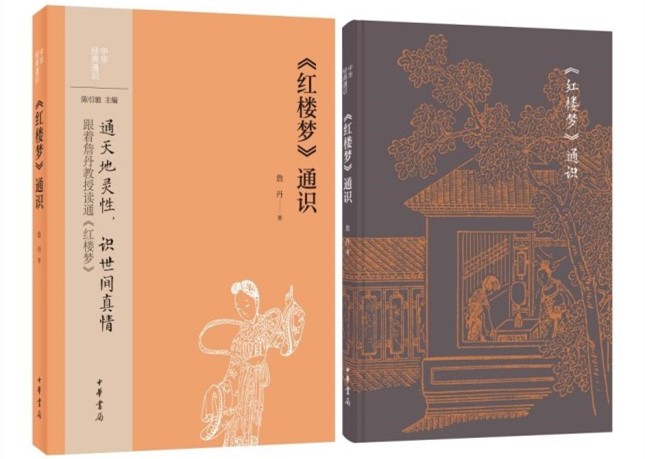
"" Dream of Red Mansions> General "
Zhan Dan
China Book Company published
Professor Zhan Dan of Shanghai Normal University studied "Dream of Red Mansions" for decades. Combined with personal reading experience, he sincerely shared the obstacles of reading "Dream of Red Mansions" and the experience of eliminating obstacles. Renewal and re -creation, cross -cultural communication, and "red studies" teams have allowed readers to read "Dream of Red Mansions" in all aspects. The author especially pays attention to analyzing the poetic and machine -confidant of daily life in "Dream of Red Mansions", which has shortened the distance with modern readers, helping readers feel sensitive to life by bluntness and reshaping the aesthetic attitude of life.
>> Selected reading in the text:
The world's style of style into the "Red Mansion"
Although "Dream of Red Mansions" is a novel written in vernacular of scattered culture, it is also mixed with various styles such as poetry, words, songs, and Fu. The encyclopedia of cultural and sports significance. However, in the past, when it comes to the phenomenon of "Cultural Dream of the Red Mansion", we pay more attention to various types of style and style. In the narrative of novels in the narrative of the scattered culture, it is also interspersed with the rhymes of poems, words, songs, and Fu. Even if some scholars have discussed the characteristics of language and physical appearance (so -called "language"), they are mainly concentrated in the interaction of the interaction between the puppet language and the scattered language or the rhyme and non -rhyme language. The overall discussion is not sufficient.
Literature is the art of language, and the style of novels must eventually be implemented in the characteristics of the language. The characteristic of "The Body of the Red Mansion" is largely manifested as the diversity of the scent. This section cuts into the problem of "literary and preparation" from the specific perspective of the section, and focuses on discussing the staggered library language of "Dream of the Red Mansion" in the rhyme in the sense of the scent. The combination of confidence and elegant language and popular and vulgar language, explore it, under such language characteristics, let us see what kind of social and cultural content, so that everyone not only stays on the surface of the language, but also It can get a deeper and detailed understanding of the phenomenon of "Wen Beizhu".
The "Dream of the Red Mansion" is distinctive, the characteristics of the "Copy Standard". An important manifestation is the unity of narrative expression and lyrical methods. It is the two traditions of history and poetics.
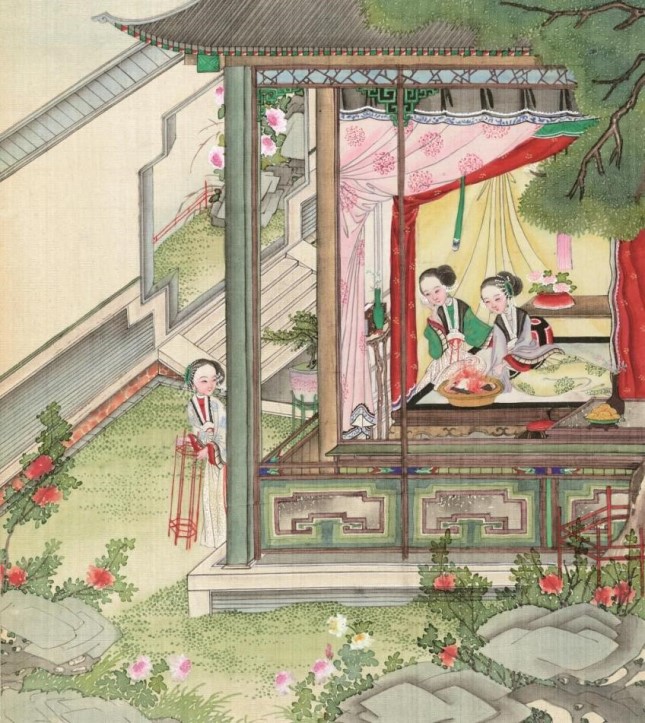
Historically, the lyrical poetry rhymes of ancient poetry were produced in the context of life. When later generations came into contact with these poems, their original context had fallen off from the back of the poem. The collection of poetry we read is mostly abstracted from the poet's life and lacks the support of soil in understanding. Poetry works are out of the historical context. The Tang Dynasty's "Poetry" is the method of combining poems with life events, and each poem is placed back to the context of life to reveal the reason for it to facilitate the readers with a specific rather than abstract, overall, and overall. Not to understand poetry.
The tradition of continuing the ability of the Song Dynasty was Ouyang Xiu, which was manifested in his "Six One Poems". "Poetry" was first proposed by Ouyang Xiu, and "Six One Poems" also became the first poem in the history of Chinese literature. The reason why Ouyang Xiu himself did not explain the reason why he was named "Poetry", but Sima Guang's "Continued Poetry" gave an explanation. He said that his reputation was not as good as Ouyang Xiu. Poetry and Ouyang Xiu's "Six One Poems" have the same place -they are "memorizing". It can be seen that the "words" of "poetry" refers to "narrative", and "poetry words" are "incidents about poetry". In the Qing Dynasty scholar Zhang Xuecheng attributed the novels to the poetic category in "Literature and History", and talked about the development of Chinese novels in the category of poetry. In his opinion, the novel unified poetry and events. Although he tried his best to criticize the development of the novel, he believed that the novels integrated narrative and poetry were in line with reality, which largely echoed the characteristics of the "Wen Bei". Below we analyze "Dream of Red Mansions" from the perspective of the rhyme of the language and the confrontation of Wenbai.
(1) Rhyme staggered
First of all, the basic way to communicate and communicate with the characters of the "Dream of Red Mansions" is loose culture. When the wording of scattered culture is converted into poetry and other rhymes, there is a separate effect, that is, the characters can be temporarily removed from the scene to objectively, with objective objectives to objectively Looking at the words of the characters, it is difficult to complete certain functions that are difficult to complete.
For example, letting a person post tall in daily talks will look ridiculous, but if you express it with a poem, we seem to be easy to accept. Poetry in the novel is actually following the practice of "poetry and words" in ancient times. It uses tortuous and roundabout to make macro theory containing great ambitions easily accepted by everyone. In this way, Xue Baozhen will borrow chanting catkins in her "Linjiang Immortal" to express the aspiration of "good wind frequency borrowing power and sending me to Qingyun". It makes people feel weird. In addition, people who fall in love with love to love are always a bit shy to express love, especially in traditional society, there are many taboos between men and women. But it is not so embarrassing to put this kind of love in the poems and songs of rhymes. When poetry carries human emotions, poetry has become a medium for communication and communication between the two sides, and independent from the daily cultural language, the characters do not need to face each other directly. To protect your barrier, you can write a lot of words that are inconvenient, unable to say, and dare not say in person. Some poems of Lin Daiyu are even inconvenient to say in front of Jia Baoyu. With the special style of poetry, she creates a world of temporary temporary isolation, so that she is immersed and intoxicated, which is more convenient and smoother The hidden emotions of depression in his heart poured out. For example, Lin Daiyu gave her three quatrains on the old Pa that gave her to Jia Baoyu, and expressed her all her love for Jia Baoyu through the inscription of tears in her. But this kind of lyric, Lin Daiyu will not be expressed as Baoyu's words with scattered culture. It seems that only by rhyme can it be carried on this emotion just right. It can be said that the method of staggered the rhyme has achieved personalized communication and expressions at different levels of the characters or different levels of emotions. Secondly, from the perspective of the overall structure of the narrative, rhyme stagnation not only means the character expressing emotions smoothly, but also not only the way of communication, especially the changes in lyrical methods, but also the differentiation and complementarity of the narrative system itself.
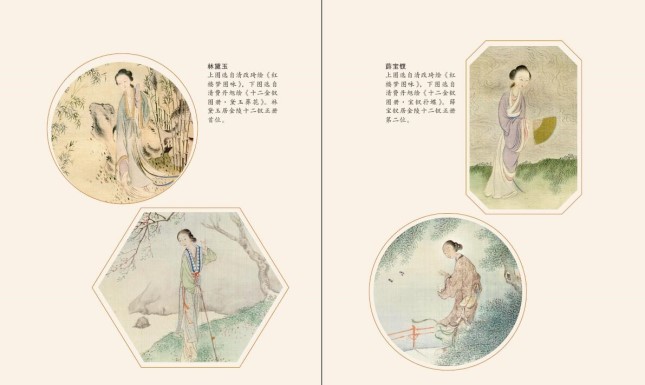
"Dream of Red Mansions" is roughly divided into two parts in the prose. Although some of them become the character of the character or the lyrical way of self, the other part stays at the overall narrative level, that is, the author inserts poems, words, songs and other rhymes into the plot through some artistic means to make it an component of the plot of the novel. Essence For example, during the fifth time Jia Baoyu was in the fantasy realm, under the guidance of the Police Fairy, he saw the verdict in the "Jinling Twelve Sisters" booklet, and he heard the "Red Mansion Dream" suit. These judgments and songs are actually hinted and explained in the future fate of the main characters of the novel. But the reason why you do n’t need to scatter the language directly described it directly, but implies through the rhyme judgment and the lyrics in the performance, because these contents have a weiri -style destiny thought, which is some hints made on the future destiny of the characters in advance. , It does not belong to the storyline that develops in the order of normal time. In this way, on the one hand, the jump -type connection of rhyme language such as poetry, words, and song uses rhetoric methods such as image combinations. It interprets its own ambiguous and difficult conclusion. Understanding is uncertain and unclear, you can also explain it with unobstructed sky. On the other hand, the normal advancement of daily life and the hint of future fate are actually divided into two different narrative systems. The description level and mysterious suggestion of the future level complementarity.
However, the deeper relationship between the narrative and the rhyme of loose culture lies in the generation relationship between the two, that is, the narrative provides a full context for the rhyme, and the rhyme has improved the state of narrative. As mentioned earlier, Lin Daiyu's funeral words are closely related to the narrative of her unfortunate life in the language of scattered culture, and her touching power is greatly strengthened. understand. Even until later, "Daiyu Burning Flower" became its image logo and a understanding of it, but this understanding is actually the combination of the narrative of her scattered culture and rhyme culture. Essence Xiang Ling, who learned poetry with her, even reflects the profoundness of society reflected in the combination of rhyme lyrics and prose narratives.
"Xiang Ling Xue Shi" is a famous segment in "Dream of Red Mansions". Xiang Ling was originally the daughter of Zhen Shiyin's family. When she was young, she was trafficked. During the breeding process, she was beaten to amnesia. She completely forgot or dared not mention her life. She is the most obsessed with poetry in the novel. Her creation does not care about it, not simply contributing her poems to the novel's proclaimed cultural narrative, but to express her motivation to write poetry from the struggle of the fate of suffering. Poetry's charming evasion of suffering reality. She comforted her misfortune with persistent poems. But the profound nature of the novel or a paradox is that although Xue Yan, who is so vulgar, is not qualified to do her dependence, when Xue Yan goes out to business, Xiang Ling wrote the best poem in Grand View Garden. The novel explained that this poem was from dreams. The unconscious psychology contained in the image of a woman in a girlfriend who missed her husband, thereby deepening the tragic fate that Xiang Ling could not change. In this way, the mysteriousness of the difficulty of poetry is associated with the deep consciousness and psychology of the protagonist again, which is combined with the narrative of the scattered culture to portray a comprehensive three -dimensional and profound image of Xiangling. (2) Wenbai confrontation
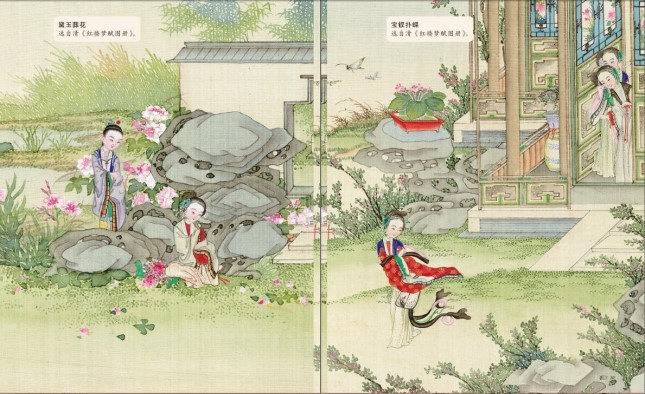
"Dream of Red Mansions", as a classic vernacular novel, is naturally vernacular in vernacular, but vernacular and classical confrontation in some occasions are also worthy of reminiscence.
In the eighteenth round of Yuan Fei Province, Yuan Fei and relatives and relatives talked with relatives and friends in vernacular in vernacular, but others answered more written words in classical Chinese. The maiden for a while, not talking and laughing, but crying. I went there for a while, and I didn't know how much sooner or later. "Because of asking:" Why don't you see Aunt Xue, Baodi, and Daiyu? "Mrs. Wang replied: "Outsourcing is no job, I dare not enter." Later, I asked again, "Why don't Baoyu go in?" Jia mother replied: "No, the outside men dare not enter." The mother said to her daughter and grandmother to her granddaughter. Such a written language appears rigid and rigid.
But the situation here is that Mother Jia and Mrs. Wang faced not only their granddaughter and daughter, but also the royal concubine. They needed to answer with a very serious written language. On the surface, Yuan Fei spoke really, and the written language of Mrs. Wang and Mother Jia seemed to be in control of emotions, but in depth, the difference between this kind of language implied the difference in etiquette. The concubine can talk to her grandmother and mother in easy and casual vernacular to show her kindness, but the grandmother and parents cannot be the case, which reflects the dignity of the royal family. Generally speaking, high -level nobles can speak in their mouth language. The differences between this identity and scent shows the tone of the aristocratic class, and the lower levels need to be answered with the level of the upper identity, so as to show the upper noble nobles Respect. (Perhaps today, we can still see a little traces of such a little. For example, in the conference, they are also speaking on stage. The host generally calls the people of flat heads "speaking". The name "Speaking" implies relatively restrained, and the name of the vernacular "speech" implies that relaxation and randomness, thus drawing out the differences of their status) The difference in the text of the language implies the grade system of etiquette culture, and further further Contains conflicts of affection and courtesy, loyalty and filial piety.
Of course, such a performance is not static, with a clear contrast to the dialogue between Yuan Fei and his father:
(Jia Fei) Tears of the curtain says that his father said: "The family of Tian She, although the salt is a cloth, can finally gather the joy of the sky; although the wealthy and rich are all the parties, but they are unsatisfactory in the end!" Tears opened: "Chen, grasshopper cold door, doves of crows, do not want to conquer the Rui of the phoenix. Today, noble people go to Xitian En and Zhaozu. Dezhong is a person, fortunately and political couple. And today the great virtues of the creatures of the heaven and earth, there is no grace of ancient and modern. May my monarchy and Qianqiu, is the same lucky of the world. The concubine should not think of the years of the political couple, to be angry, and pray for self -cherishness. I live up to the thought of being considerate and love. "
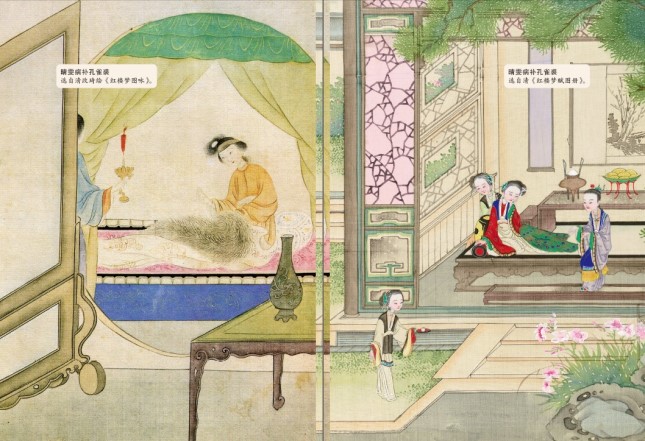
Yuan Fei is not much different from the content of his father's talking to his mother, but the words that speak to his father use classical Chinese. After all, the father was ordered to express the separation of flesh and blood to his father. Etiquette, the content and form were split, and this division was carefully favored in his grandfather's grand answer. In addition to his gratitude to the emperor, Jia Zheng also persuaded Yuan Fei to wait for the emperor. In the absolute requirements of loyalty, the father and daughter had no room for existence.
The words of the characters in the Red Mansions are confrontation. When the written text expression or the introduction of other texts in the plot advancement, the most typical example is the thirty -seventh time Tanchun association. The post from Tanchun to Jia Baoyu was written in elegant classical Chinese. He also used more allusions. Basically, he penetrated the puppet sentences. The ending said: "It means the talent of the Lotus Society, the only eyebrows of the Lotus Society; Yahui, let the remaining fat powder. If the snow comes from the snow, the dong will sweep the flowers. "Tanchun competed with men as a woman. Instead of girl, try to vaguely vaguely uniquely coordinate the heroic and unpretentious words of the articles, and coordinate the puppets of the qi and puppets. This time in the novel, Jia Yun who wanted to climb the branches in the same family as the Jia family, although a few years older than Baoyu, after a moment of admitting his father and son, he said that he was more than a senior. He is low), but he is still seriously serious. Not only is Baoyu's son, he also manages Baoyu to send two pots of begonia flowers to dedicate diligence, and attach a big vernacular with the flowers (but also a few classical Chinese words and words. ) The posts written, including such sentences: For the past, because of the flowers and plants, the adult Jin Fu, he recognized many craftsmen and recognized many famous gardens. Suddenly, there is a kind of white begonia. Therefore, the way to get exhausted, only two pots. If the adult is a dear man, he will leave a reward.
Such a big vernacular and poor words are naturally unbearable, but it is more interesting to compare this post with Tanchun's poetry post. The former is classical Chinese, the latter is vernacular, and the classical Chinese is easy to give people a sense of distance, and vernacular is closer to life. Tanchun talked about the Poetry Society in a stubborn stationery. On the one hand, the poetry agency did have the side of the current life. It was very appropriate to write in classical Chinese, but she wanted to jump out of the narrow intention of women. If Tanchun uses classical Chinese to help her fly, then Jia Yun used vernacular just to let him go down and dwarf himself into the dust. The sense of distance of classical Chinese and the sense of vernacularness is fully exerted in their own authors. Furthermore, men and women are different from the orderly and orderly people. In the two different stationery, new treatment is obtained through different language methods. It is because of this kind of new handling. Thinking and bringing again to social and cultural aspects.
>> The author profile:
Zhan Dan, a professor and doctoral supervisor at the School of Humanities of Shanghai Normal University, a leader in the doctoral point of the urban culture, and also served as the vice president of the Chinese Red Mansion Dream Society and the vice president of the Shanghai Classical Literature Society.
Author: Zhan Dan
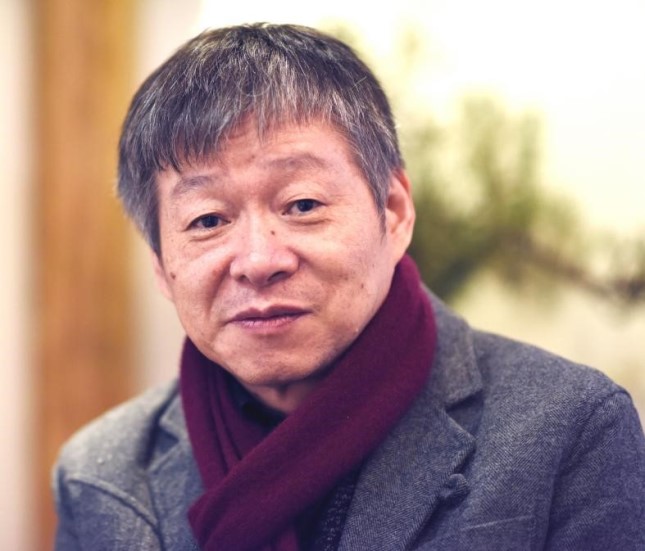
Edit: Zhou Yiqian
Editor in charge: Zhu Zilong
- END -
Shanghai Translation Publishing House in July

(Finish)
The opening ceremony of the Hong Kong Palace Museum of Culture | Hong Kong Day Day

This is the 1045th issue of Hong Kong DayThe opening ceremony of the Hong Kong For...